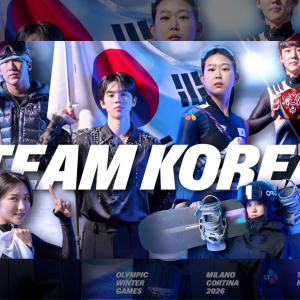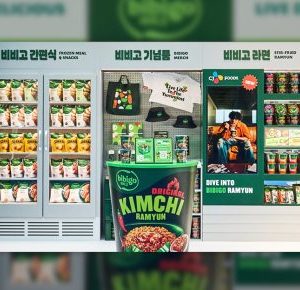“CJ Foods: The Path to Global Food Leadership” to be the first case study on a Korean food company discussed in Harvard Business School program
The case study details CJ CheilJedang’s endeavors such as bibigo GSP-led global expansion, acquisition of US-based Schwan’s Company, and K-content and sports marketing

CJ CheilJedang’s successful globalization of K-food has been selected as a case study topic at Harvard Business School (HBS).
On January 11, CJ CheilJedang said that the globalization efforts and achievements of its food business unit, CJ Foods, have been selected by Harvard Business School as a case study for its lectures. This is the first time the global top business school has ever selected a Korean food company for its case study discussions.
The case study, titled “CJ Foods: The Path to Global Food Leadership,” comprehensively outlines CJ’s business strategy, accomplishments, and the know-how that led to its global success with the seven Global Strategic Products (GSPs): mandu (Korean dumpling), processed rice, K-sauce, kimchi, gim (dried seaweed), (egg/spring) rolls, and chicken, under the global brand, bibigo.
Prepared by Professors Forest L. Reinhardt and Sophus A. Reinert from Harvard Business School, along with Senior Researcher Shu Lin from Harvard Center Shanghai, with the assistance from Sun-ho Lee, Head of Food Growth Transformation at CJ Foods in CJ CheilJedang, the case study was initially presented in the HBS Agribusiness Seminar on January 10 (EST) where 180 CEOs and executives from around the world participated in the class discussions.
“With global interest in Korean culture on the rise, CJ had a lot of tailwinds to expand our business worldwide,” Lee shared in the case study, and added, “We need to move fast to expand our Korean food business globally. That way, even if the interest in Korean culture dies down, people will still be eating Korean food.”
The case study delves into the success story of Hetbahn and CJ Group Chairman Lee Jay-hyun’s “ONLYONE” mindset it embodies. The study explored how the ONLYONE mindset – striving to be the first, the best, and different – facilitates the continuous growth of businesses, products, and services.
The case study went on to explain how CJ Foods expanded its business by designating seven GSPs after closely monitoring trends in overseas markets. The study highlighted mandu as the most successful GSP, maintaining the authenticity of Korean food at its core while expanding its coverage globally with just the right amount of localization tailored for each market. To note, bibigo mandu alone exceeded KRW 1 trillion in global annual sales in 2020 and rose to leadership in the US mandu market in 2021 by executing a highly refined strategy.
It also covered the successful integration of Schwan’s Company and CJ Foods, detailing how the company managed to increase sales of Schwan’s Company from 2.3 billion USD in 2019 to 3.0 billion USD in 2022; Red Baron®, Schwan’s major frozen pizza brand, has grown into a market leading brand by raising the market share to 21% in Q3 last year from 14% in 2019.
The case also featured CJ’s various cultural marketing efforts targeting younger consumers around the globe, including participation in the world’s largest Korean culture festival “KCON” and the title sponsorship of the PGA Tour event “THE CJ CUP” since 2017 and the global marketing partnership with the NBA team, LA Lakers, since 2021.
The study report elaborated on CJ’s regional business strategies. For example, in the US, the integration with Schwan’s Company’s distribution channels accelerated bibigo products’ listing in mainstream retail channels such as Walmart and Kroger. The company acquired a number of local companies in Vietnam to become the country’s No. 1 Kimchi and frozen ready-meal player. In Europe, where consumers are relatively unfamiliar with Korean food, CJ Foods worked with local restaurant chains to introduce its products. The case study went on to introduce how CJ closely assesses the business prospects of potential target countries based on factors such as population, GDP per capita, Asian food market size, the number of Korean restaurants, and cold chain logistics.
The lecture encompassed diverse topics related to CJCJ, including the acquisition of Schwan’s Company, the performance of overseas business, and global branding and marketing strategies. During the class, the participants deliberated on different challenges and opportunities that lie ahead for the company to achieve prominence as a leading global food player; they discussed where the priorities of a business should lie, whether to focus more on M&As or greenfield investments when venturing into new businesses and on striking the right balance between authenticity and localization.
Harvard Business School is known for its case method, teaching most of its classes through case studies. Going forward, this case study on CJ Foods will be used as valuable teaching material in business management classes at not only Harvard but also many other business schools worldwide.











